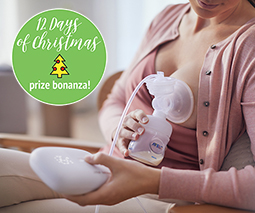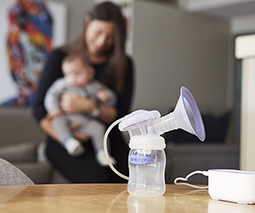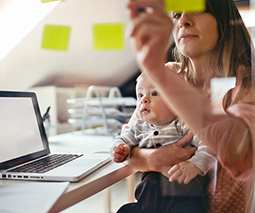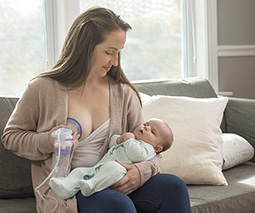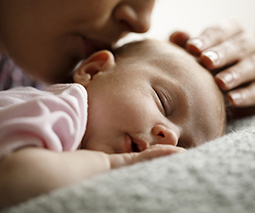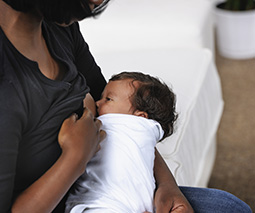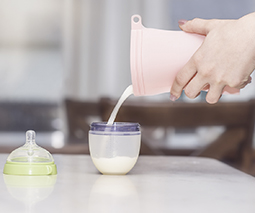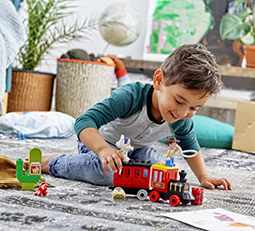6 amazing things that happen to your body when you breastfeed
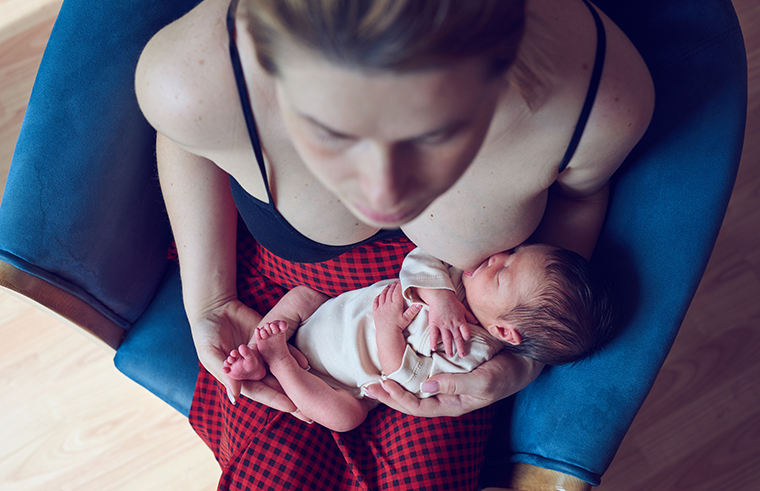
All mums’ bodies are amazing. Whether you’re using breast or bottle, your post-baby body is one super-charged powerhouse. However, if you choose to breastfeed, you might notice some remarkable physical changes taking place while you feed.
Here are six changes that you should take a moment to appreciate.
1. Your uterus shrinks
As your baby nurses, your body starts to release oxytocin – that marvellous feel-good hormone that also happens to help your uterus contract after birth. You might feel some light cramping in your lower abdomen – particularly if this is your first baby – kind of like period pain; this is literally your uterus shrinking back down to its normal size and your body healing after delivery.
2. You burn lots and lots of calories
It’s estimated that breastfeeding burns 300 to 500 calories a day. That’s the calorie equivalent of a bagel with cream cheese, or a waffle with maple syrup. And to put that in perspective – it would ordinarily take a one-hour spin class to work off that kind of calorie load. Not you. All you have to do is feed your baby, and you’re automatically sweeping calories out of your body. As a result, you’ll notice an uptick in your appetite, so eat regularly to sustain your energy.
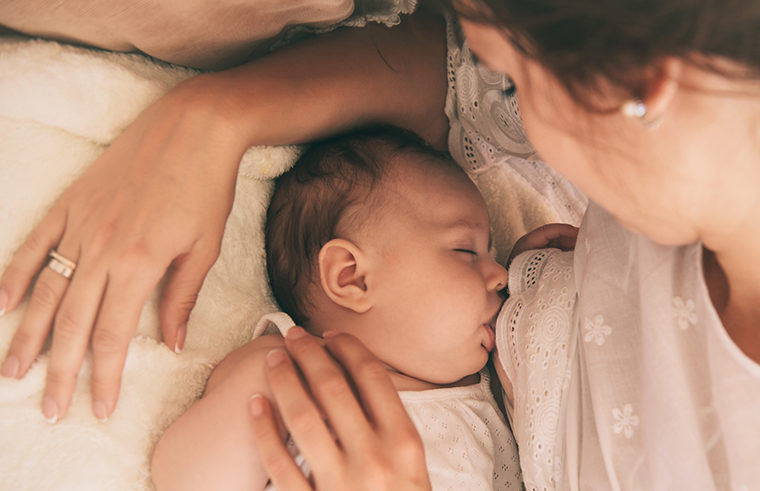
3. Your hormones go a little crazy
When you’re breastfeeding you automatically produce two hormones – oxytocin and prolactin. These are essential for creating milk, but you might notice two major side effects: a drop in your libido and no period. You may also find you’re acting a little differently. Like feeling super happy and head-over-heels-swoony. You can thank the oxytocin, which also happens to be the same chemical we release when we fall in love. Another hormonal effect of breastfeeding is drowsiness, especially in the early days. Similar to when you finish a big meal, you’ll feel an overwhelming sense of relaxation. Nature’s way of helping new mums to get a bit of shut-eye perhaps?
4. You leak
In the early days after birth, your breasts may seem to be working on their own clock, spontaneously leaking, dribbling or spraying at inconvenient times. It’s natural. They might even get going when your baby cries. Or you think about your baby. Or your baby wriggles its finger. It’s like your breasts are on vigilant standby and anything even slightly emotional can get them pumping. Thanks again to oxytocin, which is the hormone controlling your letdown reflex.
5. You serve up a carefully customised food supply
To the naked eye it looks like a fairly standard kind of white liquid, but breast milk is an ever changing food supply that is constantly morphing itself to meet your baby’s changing needs. The first milk your baby feeds on is watery and tends to quench your baby’s thirst. Then comes the thicker milk that is high in fat. This two-course meal is perfectly dispensed to give your baby the electrolytes, fats and nutrients they need. And as if that wasn’t enough, your breast milk also changes its components to support any antibodies that your baby is low in – meaning your milk is doing its best to protect your baby from getting sick.
6. Your bone density changes
Your growing baby’s need for calcium means your body might have to draw additional calcium from your bones. In fact, it’s thought that women may lose 3-5 percent of bone mass during breastfeeding. This may also be due to the fact that the body produces less oestrogen during breastfeeding. But again, the body has a clever trick up its sleeve, recovering any lost bone density within six months after weaning. Just another way our amazing bodies keep perfect balance with our babies.

